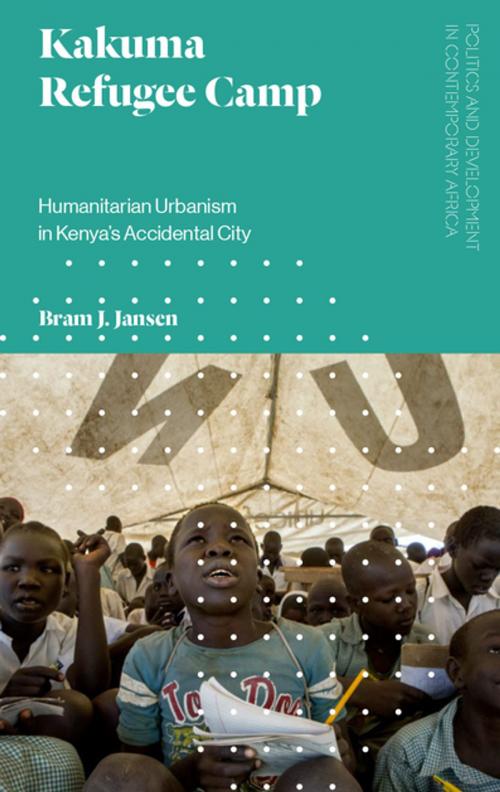Kakuma Refugee Camp
Humanitarian Urbanism in Kenya's Accidental City
Nonfiction, Reference & Language, Education & Teaching, Higher Education, Social & Cultural Studies, Social Science, Anthropology| Author: | Bram J. Jansen | ISBN: | 9781786991911 |
| Publisher: | Zed Books | Publication: | June 15, 2018 |
| Imprint: | Zed Books | Language: | English |
| Author: | Bram J. Jansen |
| ISBN: | 9781786991911 |
| Publisher: | Zed Books |
| Publication: | June 15, 2018 |
| Imprint: | Zed Books |
| Language: | English |
Kenya’s Kakuma refugee camp is one of the world’s largest, home to over 100,000 people drawn from across east and central Africa. Though notionally still a ‘temporary’ camp, it has become a permanent urban space in all but name with businesses, schools, a hospital and its own court system. Such places, Bram J. Jansen argues, should be recognised as ‘accidental cities’, a unique form of urbanization that has so far been overlooked by scholars.
Based on extensive ethnographic fieldwork, Jansen’s book explores the dynamics of everyday life in such accidental cities. The result is a holistic socio-economic picture, moving beyond the conventional view of such spaces as transitory and desolate to demonstrate how their inhabitants can develop a permanent society and a distinctive identity. Crucially, the book offers important insights into one of the greatest challenges facing humanitarian and international development workers: how we might develop more effective strategies for managing refugee camps in the global South and beyond.
An original take on African urbanism, Kakuma Refugee Camp will appeal to practitioners and academics across the social sciences interested in social and economic issues increasingly at the heart of contemporary development.
Kenya’s Kakuma refugee camp is one of the world’s largest, home to over 100,000 people drawn from across east and central Africa. Though notionally still a ‘temporary’ camp, it has become a permanent urban space in all but name with businesses, schools, a hospital and its own court system. Such places, Bram J. Jansen argues, should be recognised as ‘accidental cities’, a unique form of urbanization that has so far been overlooked by scholars.
Based on extensive ethnographic fieldwork, Jansen’s book explores the dynamics of everyday life in such accidental cities. The result is a holistic socio-economic picture, moving beyond the conventional view of such spaces as transitory and desolate to demonstrate how their inhabitants can develop a permanent society and a distinctive identity. Crucially, the book offers important insights into one of the greatest challenges facing humanitarian and international development workers: how we might develop more effective strategies for managing refugee camps in the global South and beyond.
An original take on African urbanism, Kakuma Refugee Camp will appeal to practitioners and academics across the social sciences interested in social and economic issues increasingly at the heart of contemporary development.















